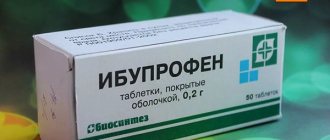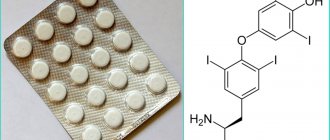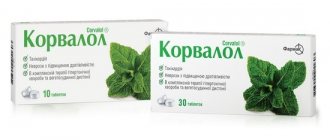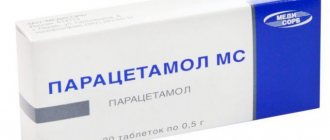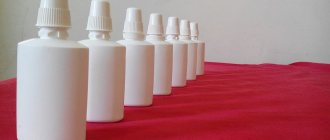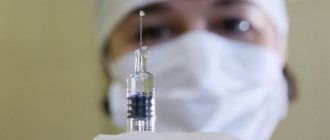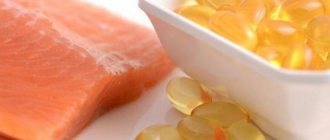Glycine
International nonproprietary name glycine (aminoacetic acid)
Registration number R No. LSR -001431/07 dated 07/09/2007
RF Patent No. 2171673; RF Patent No. 2082398
Pharmacotherapeutic group: Metabolic agent.
ATX code : N06BX.
Pharmacological properties. Glycine is a metabolic regulator, normalizes and activates protective inhibition processes in the central nervous system, reduces psycho-emotional stress, and increases mental performance. Glycine has glycine- and GABA-ergic, alpha1-adrenergic blocking, antioxidant, antitoxic effects; regulates the activity of glutamate (NMDA) receptors, due to which the drug is able to:
- reduce psycho-emotional stress, aggressiveness, conflict, increase social adaptation;
- improve mood;
- make it easier to fall asleep and normalize sleep;
- increase mental performance;
- reduce vegetative-vascular disorders (including during menopause);
- reduce the severity of brain disorders in ischemic stroke and traumatic brain injury;
- reduce the toxic effect of alcohol and other drugs that depress the function of the central nervous system.
Pharmacokinetics. Easily penetrates into most biological fluids and tissues of the body, incl. into the brain; metabolized to water and carbon dioxide, its accumulation in tissues does not occur.
Indications for use:
- reduced mental performance.
- stressful situations – psycho-emotional stress (during exams, conflict situations, etc.).
- deviant forms of behavior of children and adolescents.
- various functional and organic diseases of the nervous system accompanied by increased excitability, emotional instability, decreased mental performance and sleep disturbances: neuroses, neurosis-like conditions and vegetative-vascular dystonia, consequences of neuroinfections and traumatic brain injury, perinatal and other forms of encephalopathies (including alcoholic origin).
- ischemic stroke.
Contraindications. Individual hypersensitivity to the components of the drug.
Directions for use and dosage:
Glycine is applied sublingually or buccally at 100 mg (in tablets or in powder form after crushing the tablets). For practically healthy children, adolescents and adults with psycho-emotional stress, decreased memory, attention, mental performance, mental retardation, and deviant forms of behavior, glycine is prescribed 1 tablet 2-3 times a day for 14-30 days.
For functional and organic lesions of the nervous system, accompanied by increased excitability, emotional lability and sleep disturbances, children under three years of age are prescribed 0.5 tablets (50 mg) per dose 2-3 times a day for 7-14 days, then 50 mg 1 time per day for 7-10 days. Daily dose – 100-150 mg, course dose – 2000-2600 mg. Children over 3 years of age and adults are prescribed 1 tablet 2-3 times a day, the course of treatment is 7-14 days. The course of treatment can be increased to 30 days; if necessary, the course is repeated after 30 days.
For sleep disorders, glycine is prescribed 20 minutes before bedtime or immediately before bedtime, 0.5-1 tablet (depending on age).
For ischemic cerebral stroke: during the first 3-6 hours from the onset of stroke, 1000 mg is prescribed buccally or sublingually with one teaspoon of water, then for 1-5 days 1000 mg per day, then over the next 30 days 1-2 tablets 3 times a day.
In narcology, glycine is used as a means of increasing mental performance and reducing psycho-emotional stress during the period of remission in cases of encephalopathy, organic lesions of the central and peripheral nervous system, 1 tablet 2-3 times a day for 14-30 days. If necessary, courses are repeated 4-6 times a year.
Side effect. Allergic reactions are possible.
Interaction with other drugs. Reduces the severity of side effects of antipsychotics (neuroleptics), anxiolytics, antidepressants, hypnotics and anticonvulsants.
Release form. Sublingual tablets 100 mg.
50 tablets in a blister pack in a cardboard pack along with instructions for medical use.
Storage conditions. In a dry place, protected from light, at a temperature not exceeding 25 0 C.
Keep out of the reach of children.
Best before date. 3 years. Do not use after the expiration date indicated on the package.
What is "Glycine"?
Glycine tablets are available in almost every home medicine cabinet. Still would! You’ll tell someone that your nerves are bad or you’re not sleeping well, and they’ll immediately answer you: “Drink some glycine and everything will return to normal.” And for the price, these little tablets are inexpensive and taste good, and are sold in every pharmacy without a prescription. This drug cannot overcome severe depression, but it can cope with minor stress.
Glycine pills are taken by students during a stressful session, people who have problems falling asleep, sometimes doctors even prescribe them to children if they have increased nervous excitability. At the same time, the reviews are excellent, otherwise the product would not be so popular.
Meanwhile, not everyone knows that “Glycine” is not even classified as a medicine, but belongs to the pharmacological group of biotics - such substances are always present in our regular food. Its main component is an aliphatic amino acid. It stimulates the human body to produce nucleic acids and proteins, which in turn has a normalizing effect on the synthesis of various enzymes.
Overdose
So what do you need to know about this? To achieve a good therapeutic effect, “Glycine” must be taken in accordance with all the instructions of a qualified doctor. If you exceed the dose, there is a high risk of overdose.
You can recognize it by the presence of the following symptoms:
- increased fatigue;
- indifference to everything around;
- decreased physical and mental performance;
- violation of spatial orientation;
- decreased concentration;
- dizziness;
- rashes on the skin;
- itching;
- anaphylactic shock;
- nausea and vomiting;
- stomach upset;
- cough;
- impaired kidney function;
- Lactacidemia.
In case of overdose, it is necessary to do an urgent gastric lavage, and then call an ambulance. It is prohibited to give any medications on your own, as this can only worsen the situation.
How does the drug affect the body?
Biotic "Glycine" - what is it for? Here's why: it normalizes metabolic processes and has a beneficial effect on the functioning of the brain and nerve cells. Thus, the following happens in the body:
- brain activity improves;
- nervous excitability is muted;
- sleep returns to normal;
- the toxic effect of alcoholic beverages on the body is reduced.
"Glycine" and alcohol
As a rule, the instructions for medications always state that one or another drug should not be taken with alcohol. With Glycine the opposite is true. Doctors say that if during a feast where there is a large amount of alcohol, you take just one pill of this biotic every hour, then the negative effect of alcohol on brain cells will significantly decrease and intoxication will slow down. And as a result, such a condition as a morning hangover can be successfully avoided. So, we can say about “Glycine” and alcohol – their compatibility is excellent.
However, there is no need to treat “Glycine” as a magic remedy or panacea, because pills are not able to completely neutralize the harmful effects of ethanol; they only reduce its effect, aimed at suppressing nervous system functions. Tablets help accelerate the breakdown of alcohol breakdown products, but cannot protect the digestive system and urinary organs, which means that alcohol has a very intense destructive effect on them. Therefore, you can expect effective help from Glycine only with moderate alcohol consumption.
It is important to remember when taking Glycine and alcohol together that in this case the drug gives a fairly noticeable sedative effect. Those. It can make you feel very sleepy. This effect of aliphatic acid manifests itself precisely in the presence of alcohol in the blood; in a sober state, the drug does not give such a side effect, although it is indicated for use for insomnia.
Treatment
If an allergic reaction develops, antihistamines are administered. An acute immune reaction, such as angioedema, is a reason to urgently seek emergency help. If there is no improvement, the patient is also sent to the hospital after the first measures aimed at eliminating the consequences of poisoning.
READ Phenazepam overdose
As part of the therapy, he is given an enema to cleanse the intestines and his stomach is washed out. For severe signs of intoxication, sorbents are indicated - Neosmectin, Polysorb, Smecta, Enterosgel, etc. The medicine is prescribed in dosages corresponding to the instructions. Activated carbon is effective - one tablet per 10 kg of weight at a time.
Help with hangover
What is “Glycine” for when you have a hangover? In order to quickly rid yourself of severe and painful withdrawal symptoms. But the drug will not show its effect instantly. To feel a clear improvement in well-being, it is necessary for several hours to pass.
The regimen for taking “Glycine” for a hangover is as follows: dissolve 2 tablets every 2 hours. Place the drug under the tongue. This can be done throughout the day, and the total daily intake should not exceed 10 pills. Excessive fanaticism in taking the drug can result in trouble in the form of vomiting syndrome.
Side effects
It is advisable to familiarize yourself with this issue first. Above it was discussed in detail which effects of “Glycine” appear first. You should take the drug in accordance with the dosage prescribed by your doctor only if you are not at risk. Otherwise, there is a high probability of developing the following side effects:
- allergic reactions;
- disruption of the central nervous system;
- the risk of developing certain dangerous diseases;
- swelling;
- convulsions;
- seizures;
- anaphylaxis;
- a sharp decrease in blood pressure;
- drowsiness.
If undesirable consequences develop, the treatment program should be interrupted immediately. According to doctors, they will disappear on their own in a few weeks. As for anaphylactic shock, although it is theoretically possible, not a single case has been recorded in practice. In most cases, when taking Glycine, side effects in children and adults are extremely rare. Most often they are associated with individual intolerance to the drug and non-compliance with the prescribed dosage.
Contraindications to the combined use of alcohol and Glycine
And yet, not everything is so rosy. “Glycine” and alcohol - this tandem is undesirable in the following cases:
- if the amount of alcohol consumed is very large; in such a situation, you can achieve the opposite of the expected effect - the degree of intoxication will only increase;
- if any other medications were taken along with alcoholic beverages;
- in the presence of severe chronic diseases;
- if the person has recently suffered a stroke;
- if alcoholic libations occur outside the home and a strong sleepy effect on the body is extremely undesirable.
Elimination of excess
In case of an overdose, the substance quickly decomposes into carbon dioxide and water, and the excess is removed from the body naturally. Therefore, there is no need to take special measures to eliminate excess in adults. It is enough to stop taking the medication, limit physical activity and review the diet, excluding eggs, greens, gelatin, bananas, and sunflower seeds.
To eliminate an overdose of glycine in children, you need to induce vomiting, then give the child an adsorbent with plenty of water and consult a doctor. In severe cases, intravenous sodium bicarbonate may be prescribed. It is also necessary to change the diet by removing foods rich in amino acids from food.
“Glycine” and alcohol: reviews of narcologists and their patients
Before writing this material, we read many articles in which drug addiction specialists expressed their opinion about the help of “Glycine” in relieving hangovers and treating alcoholism. And we can say with confidence that their reviews are mostly positive.
Many doctors believe that it is incorrect to extinguish some of the symptoms of alcoholism only with tranquilizers (as sometimes happens in the practice of drug addiction specialists). Such medications have hypnotic, sedative and narcotic effects and are widely used to effectively relieve reactive states in alcoholics.
Meanwhile, these drugs and acetaldehyde (an ethanol derivative) seem to enter the body’s cells in the same areas. Those. the tranquilizer displaces acetaldehyde and replaces it with itself. At this time, the cell tries to maintain its vital activity, being practically under anesthesia. Narcologists say that it is useless to “put pressure” on the cell with drugs, because alcohol addiction is a molecular pathology, and a very subtle one at that. Restructuring processes occur inside cellular structures that prevent cells from existing without receiving doping.
From the point of view of doctors, to help patients cope with alcoholism, they can be taught to manage their intoxication. This is where a drug like Glycine comes to the fore. And alcohol, the consequences of which, as a rule, have a strong destructive effect, can be deprived of the status of a fatal enemy. Doctors, observing their patients, have repeatedly been convinced that with the help of “Glycine” it is possible to actively reduce the intensity of the effects of ethanol coupled with intoxication and stretch out the taking of a critical dose over time. Based on these facts, experts have concluded that with the correct regimen of using the drug, when the craving for alcohol has not yet developed into alcoholism, you can generally protect yourself from the disease.
As for the patients themselves, narcologists and simply people who have tried to drink “Glycine” in order to reduce the negative effects of alcohol, they also speak of the drug as a very effective assistant.
Final word
Well, that’s the end of our article about “Glycine” and alcohol. The interaction of both, as you understand, can be very useful if you follow simple recommendations. We wish you to always observe moderation in everything - this golden rule works flawlessly in most situations. Be healthy and prosperous!
In short: Glycine calms the nerves and neutralizes toxic breakdown products of alcohol. For a hangover, take two tablets per hour, up to five times. You can also eat jellied meat during drinking and a hangover: it contains a lot of glycine.
- How glycine helps with a hangover
- What is glycine and what is it eaten with?
- How to take glycine for a hangover
- What else are these tablets for?
Signs of poisoning
There is no exact and unambiguous description of the symptoms of what will happen from an overdose of glycine. General signs that the body has been poisoned by this medicine are:
- Sudden onset of general lethargy, falling asleep literally on the move.
- Severe dizziness.
- Complete discoordination, including a lack of understanding of where is up and where is down.
- Difficulty swallowing, that is, the person simply does not remember how to swallow.
- Inability to pronounce a long and complex phrase.
- Absolute apathy, a general absence of any reactions, even if there is a strong irritant nearby, for example, a fire.
- A rapid drop in blood pressure, to critical levels.
- Severe, “immediate” allergic reactions of any kind, from runny nose to swelling, even in those. who is not susceptible to allergies.
- Nausea, but this moment is most likely caused by dizziness.
- Sharp attacks of headache, as if the brain is being cut open.
- Complete immediate drying of the mucous membrane of the mouth and nasopharynx.
- Attacks of suffocation and coughing.
- Panic attacks due to “awareness of approaching death.”
It is impossible to confuse such symptoms with something else; the best solution would be to call doctors, and, of course, provide first aid yourself.
How to take glycine for a hangover
If you have a hangover, you should take two tablets of glycine every hour. Up to five times in total. Remember that it is not swallowed, but placed under the tongue or behind the cheek (buccal).
An attempt to increase the dose may lead to the opposite effect, since an excessive amount of acetic acid and ammonia is formed in the body.
Remember also that glycine is a good remedy, but not an emergency remedy. The action of glycine is mainly central and unfolds slowly. Recommended as part of complex treatment for withdrawal from binge drinking for several days.
What else are these tablets for?
In 2007, Japanese researchers Wataru Yamadera, Kentaro Inagawa, Shintaro Chiba, Makoto Bannai, Michio Takahashi and Kazuhiko Nakayama published the book “Biorhythms and Sleep Rhythms”, which describe the results of an experiment on volunteers who had sleep problems. Patients were given 3 grams of glycine before bed and changes in polysomnography were analyzed. As a result, there was an improvement in sleep quality in three indicators, a decrease in daytime sleepiness and improved memory. Thus, it has been proven that glycine is a worthy alternative to traditional sleeping pills, for example, from the benzodiazepine series.
Glycine, which provides hangover relief, is found in some seafood. Read our article about what other beneficial substances are found in seafood and at what stage of hangover treatment seafood will really be beneficial, and when it is useless to eat them.
This article was last updated: 12/12/2018
Didn't find what you were looking for?
Try using search
